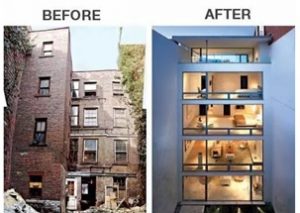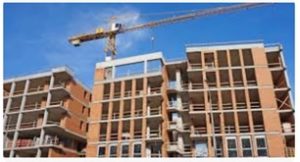 Have you ever heard the term gentrification and wondered what it really means? Gentrification is an urban phenomenon that’s transforming many neighborhoods around the world. In this blog, we’ll explain in simple terms what gentrification is, how it affects neighborhoods, and how investors can navigate these changes.
Have you ever heard the term gentrification and wondered what it really means? Gentrification is an urban phenomenon that’s transforming many neighborhoods around the world. In this blog, we’ll explain in simple terms what gentrification is, how it affects neighborhoods, and how investors can navigate these changes.
What is Gentrification?
Gentrification occurs when a declining neighborhood begins to be revitalized and renewed. This change is often driven by the arrival of new residents with higher incomes, leading to property renovations and infrastructure improvements. As a result, the neighborhood becomes more attractive to other buyers and renters, often resulting in increased property prices and a higher cost of living.
How Is It Changing the Real Estate Market?
Increase in Property Prices
One of the most visible effects of gentrification is the rise in property prices. As more higher-income people move into the neighborhood and renovations are made, property values tend to increase. This can be positive for current homeowners, as their properties appreciate in value, but it can also make housing less affordable for the original residents.
Change in Local Demographics
The arrival of new, higher-income residents can change the demographics of the neighborhood. New inhabitants may bring different needs and preferences, altering the character of the area. For example, new businesses such as cafes and boutiques may open to cater to a different clientele than was previously present.
Renovation of Infrastructure and Properties 
Gentrification often leads to improvements in the neighborhood’s infrastructure. Streets, parks, and buildings may be renovated, enhancing the quality of life in the area. While this can benefit new residents, original residents might be displaced if they cannot afford the increased cost of living.
Impact on Local Businesses
Traditional local businesses may be displaced by new ones that cater to the interests of new residents. This can change the commercial landscape of the neighborhood, removing family-run businesses and making way for chains and more modern stores.
How Can Investors Navigate These Changes?
Research the Neighborhood Thoroughly
Before investing, conduct thorough research on the neighborhood. Analyze current and future trends, property price history, and development projections. This will help you understand if the neighborhood is undergoing gentrification and how it might evolve.
Consider Social Implications
Take time to consider the social impact of gentrification. Assess how the changes might affect current residents and the community as a whole. Ensure that your investment is sensitive to the community’s needs and look for ways to positively contribute to the neighborhood’s development.
Leverage Renovation Opportunities 
Gentrification can present opportunities to invest in properties that need renovation. Properties in neighborhoods undergoing gentrification can often be purchased at lower prices before values rise. Renovating them can result in a profitable investment as the neighborhood revitalizes.
Diversify Your Investment 
Don’t limit yourself to one type of property or area. Diversifying your investment portfolio can help mitigate risks associated with gentrification. Consider investing in different types of properties and in various neighborhoods to balance your risk.
Monitor the Market Continuously
Keep a close eye on market trends. Gentrification can be a gradual and complex process. Staying informed about changes will allow you to adjust your investment strategies as needed.
Gentrification is a process that can bring significant changes to neighborhoods, from rising property prices to shifts in local demographics. While it presents interesting opportunities for investors, it also involves challenges that must be managed carefully. By researching thoroughly, considering social implications, and leveraging renovation opportunities, investors can navigate these changes and make informed decisions.
Seaport Credit Canada is your best financial alternative if you’re looking to purchase any type of real estate. 